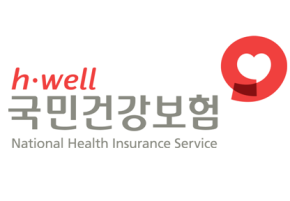Language & Culture National Health Insurance System for Foreigners in Korea
페이지 정보

본문

South Korea takes pride in its inclusive healthcare system, which extends its benefits to both citizens and foreign residents. The National Health Insurance (NHI) system plays a crucial role in ensuring that individuals from diverse backgrounds have access to high-quality medical services.
Foreign residents in Korea, including long-term visa holders and those with a legal stay period exceeding 90 days, are eligible to enroll in the National Health Insurance program. The enrollment process is straightforward and can be completed at the local district or ward office. It requires the submission of necessary documents, such as a valid residence card and proof of address. Once enrolled, foreign residents gain access to the extensive benefits provided by the NHI.
The NHI system offers comprehensive coverage to foreigners, encompassing a wide range of medical services. This includes visits to primary care clinics, specialized treatments, hospitalizations, surgeries, emergency care, and medications. Additionally, the NHI covers various diagnostic tests, vaccinations, and preventive screenings, promoting a proactive approach to healthcare. The coverage extends to both inpatient and outpatient services, ensuring that individuals receive the care they need without undue financial strain.
Foreigners enrolled in the NHI are required to pay monthly premiums, calculated based on their income level and insurance category. The premiums are generally affordable due to the government's commitment to subsidizing a significant portion of the healthcare costs. The co-payment system is also in place, where individuals are responsible for a small percentage of the medical expenses. These co-payments are relatively low, making healthcare services accessible to all, regardless of their financial circumstances.
The NHI system grants foreign residents access to an extensive network of healthcare providers throughout the country. Individuals have the freedom to choose their preferred primary care clinics, hospitals, and specialists from within this network. With a multitude of reputable medical institutions and skilled healthcare professionals, foreigners can receive medical care of the highest standards, ensuring their health needs are met effectively.
To enhance accessibility for foreign residents, the Korean healthcare system offers multilingual support services. Many hospitals and clinics provide interpretation services in English and other commonly spoken languages. Moreover, some medical facilities have dedicated international departments staffed by personnel fluent in multiple languages. These language services help bridge any communication gaps and ensure clear understanding between healthcare providers and patients.
In addition, South Korea has established reciprocal healthcare agreements with several countries, enabling foreign residents from those nations to receive medical services under the NHI system. These agreements facilitate access to healthcare for individuals who may not be eligible for standard NHI coverage. The specifics of these agreements vary, but they generally allow for necessary medical treatments and emergency care during the individual's stay in Korea.
The National Health Insurance system in Korea ensures that foreign residents have access to comprehensive healthcare on par with that provided to citizens. Through its eligibility criteria, extensive coverage, affordability, and accessibility to healthcare providers, the NHI system prioritizes the well-being of all residents. By embracing inclusivity and offering high-quality medical services, Korea sets an example of a healthcare system that caters to the diverse needs of its population, including foreigners residing in the country.
- PrevIndulging in Mongolian Delights in Dongdaemun, Seoul 23.06.23
- NextMy Experience of Moving to a New Place in Seoul: Embracing Change and Making it Home 23.06.23
댓글목록
There are no registered comments.
